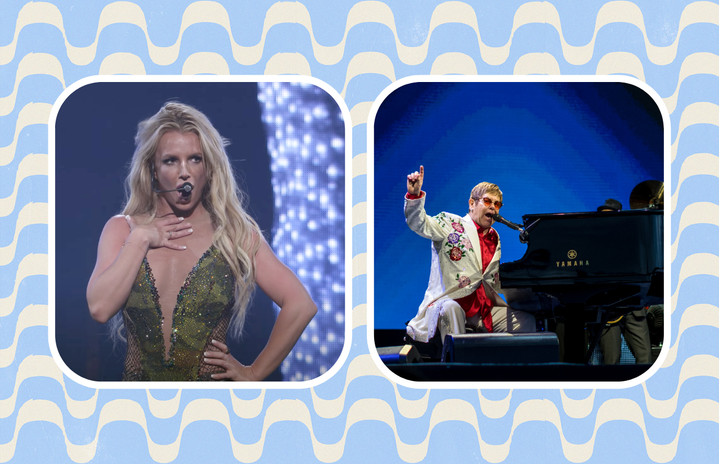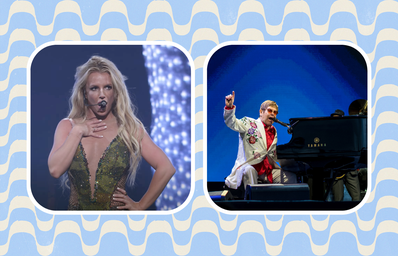Reginald Kenneth Dwight is undoubtedly a main contributor to the development and evolution of pop culture. He was born a child prodigy, and grew into not only a singer, but also pianist and composer who was to sell more than 250 million records worldwide. Reginald Dwight even holds the current record for the world’s biggest selling single of all time. He demonstrated remarkable talent throughout his fame, as he worked to assimilate rock music with pop-like tunes to create energetic, extroverted, and somewhat personal songs. He continues to leave an incredible, influential impact on the music industry, as his music further impacts those who hear it. Not only has he influenced music in a major way, but also cultures resonating with gender, sexuality, and social class. Now you may be asking yourself, who exactly is Reginald Dwight? If he is so famous and well-known, why am I first hearing his name now? To answer these questions I have only two words for you, Elton John.
When individuals speak of American pop culture, they are likely referring to cultural products, such as television, music, fashion, or radio, that are consumed by the individuals in U.S. society and provided by mass media. Based on their consumption, individuals may have such great interest in a performer, movie, or style that they completely absorb themselves in it. According to the work and ideas formulated by Henry Jenkins regarding fandoms, “fans are among the most critically engaged and socially connected consumers of popular culture.” When Elton John was rising to fame in the seventies, his fan base grew greater by the minute. He now refers to them as the collective “Rocket Club,” after his hit single, “Rocketman.” At concerts, John’s fans would wear the same bright colors, dramatic glasses, and even purchase merchandise produced by Elton John’s team.
Because Elton John had such a peculiar style and extroverted showmanship, his overall style and music can be considered revolutionary. His performances, one could say metaphorically, have enough energy (both from John, and his crowds) to power the lights of Madison Square Garden. John’s homosexuality naturally found its path into his costumes, performances, and lyrics, ultimately reflecting his feelings and opinions regarding broader historical issues, such as gay marriage or changing gender. He encourages his Rocket Club to live as they genuinely want to, whether that be in a new identity or that which they were born with. He teaches his fans through his touching music that one should step away from the stereotypes they have been boxed in by and to be the person they dream of. John has done an excellent job of changing the cultural and sexuality-related morals of his fans. The fandom carries his enlightening, important, and positive message throughout their own lives, and therefore can feel more self-worth and self-appreciation. It cannot be doubted that Elton John’s music has brought years of true happiness, rather than false, empty pleasures.
Elton John does not aim to influence only an American audience with his passion, but individuals living all around the world. He encourages others to not only celebrate their sexuality freely, but also their ethnicity and cultural backgrounds. One could argue that American popular culture is not very American at all, especially when using the Salad Bowl Theory as reference. The Salad Bowl Theory shows that immigrants can maintain their unique, and cultural identities that would otherwise be lost to assimilation and integration. Rather than melt into the identity of a “normal,” “usual,” and “typical” American, individuals should feel free to express themselves however they choose and feel most comfortable with. With an exchange of culture comes an exchange of ideas, knowledge, tradition, language, and regularities that Americans may not necessarily be used to. Though John’s vocals are strongly American-influenced, he actually grew up in the United Kingdom. It can be assumed that because John encourages his followers to celebrate their uniqueness, that he too would agree that America does not consist of only one culture formed out of assimilation. John and many others agree that one should retain their own cultural identity rather than blending in with what is expected of them by society.
Though Elton John has millions of fans, making him one of the most influential performers of his generation, he does not solely control the reception of popular culture. Elton John’s record labels, such as the Universal Music Group and The Rocket Record Company, cannot predict how well the release of an album will be reciprocated, as the success of a cultural object depends on its followers, audiences, recipients, and listeners. These cultural consumers make their own meanings from his music (and other content sourcing from popular culture), which will determine how his popular culture is received. Furthermore, Elton John helps other companies improve their sales through endorsement, as well as the Two-Step Flow Theory. The Two-Step Flow Theory, founded by Paul Lazarsfeld, suggests that most recipients are not impacted by mass media, but are persuaded to purchase a product after resonating with an opinion leader. By translating messages into easy-to-understand frameworks from the mass media, Elton John has worked as an opinion leader for brands such as Pepsi, Yamaha, Diet Coke, and Riedel. John works hard to influence the popular culture affecting both America, and the world, but cannot do it alone.
Elton John has not only influenced popular culture by encouraging fans to express themselves sexually, culturally, and racially, but he has used his international popularity to raise awareness for many projects throughout the Coronavirus pandemic, such as rainforest conservation, LGBTQIA+ camps, and first responder support. He has shown himself to be just as influential a humanitarian as he is a singer. Additionally, John founded and donated millions of dollars to an AIDS foundation of his own. He acted on the promises he made to audiences regarding his donations and passion to help others, which differed from many artists known today. Rather than pretending to care and proceeding to do nothing about a growing issue, Elton John donated substantial amounts of proceeds to a variety of AIDS charities. His impact has brought joy and happiness to fans, but brought others a greater ability to research and fight a dreaded disease.
It can be concluded that Sir Elton John is one of the most influential performing artists of this current lifetime, both in and out of America. He has proved great determination as a humanitarian and pop artist, selling millions of records while also providing an overwhelming amount of support to many charities around the world. John’s lasting and impactful career demonstrates that with motivation, will, and confidence, one can accomplish anything they set their mind to, no matter where one comes from, who one loves, what gender one identifies as, or how one presents themselves. He encourages his fans to express themselves shamelessly and openly, which reflects a new perspective on historical issues such as gender change and same-sex marriage. Elton John reinforces the values and moralities of love and identity through his music, providing liberation and freedom from previous limits for his fans. With this combined evidence, it is hard to determine if any other artist has done more to show that perseverance and a belief in one’s own truest self is rewarded.


